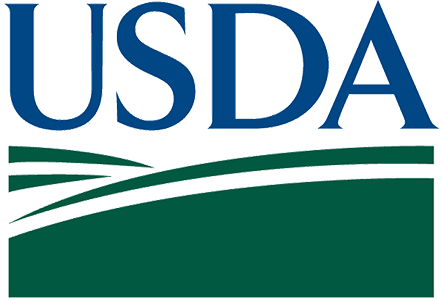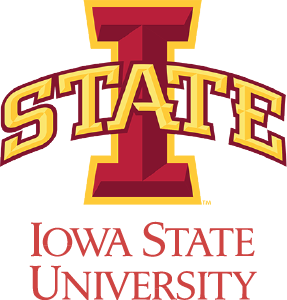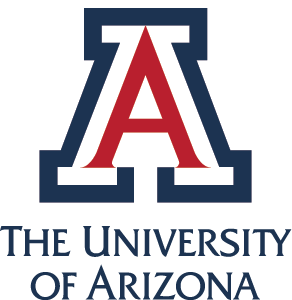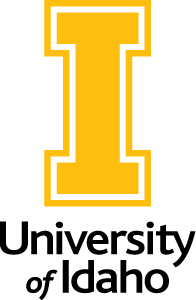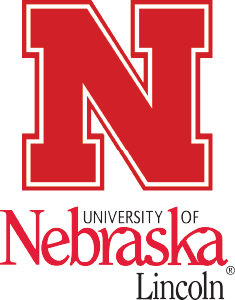Seed Grants - Working Group
Request for Proposals (RFP)

Have a Question About AG2PI's Seed Grants?
If you have specific questions regarding AG2PI Seed Grants program, don't hesitate to contact us by clicking the button below.
Submit your QuestionOverview
The Agricultural Genome to Phenome Initiative (AG2PI) was created to address the challenges of agriculture, from genome to phenome, by building a cross-kingdom and multi-disciplinary research community. The seed grant mechanism within AG2PI is intended to foster first steps towards the development of community solutions to research needs and opportunities, gaps in physical infrastructure and data management, as well as community building and inclusion.
In response to the need to quickly make progress on mapping out the challenges and opportunities within agricultural genomes to phenomes research and related endeavors, we have created this new funding opportunity to support the formation of working groups. We invite proposals that involve a group scientists from a variety of institutions and disciplines (e.g., nutrition, physiology, sociology, computer science, engineering, economics, etc.) who will work together on a shared problem by offering their unique perspectives and experiences. Such problems should be larger and more challenging than could be solved by a single investigator or research group and represent an impediment to an entire subarea of G2P. Preference will be given to groups whose leadership includes both a senior professional (e.g., full professor, executive director, etc.) and a junior professional (e.g., assistant professor, postdoc, etc.).
Successful proposals will explain how the working group will further develop an area within the AG2PI community and will demonstrate how the award will support the goals of AG2PI (as described on the AG2PI website). Projects that broaden interactions as much as possible and seek to find synergies across communities and organizational types are highly encouraged (e.g., plants and animals; academics, government, and the private sector). Proposals may be submitted on a rolling basis.
- Anticipated number of awards: limited
- Start date: anytime
- Length of award: no longer than one year
- Maximum budget per award: $20,000
Program Scope
This AG2PI working group grant opportunity is focused on supporting the formation and management of a working group
(the team working group
is analogous to community of special interest
or
birds of a feather
). At minimum, working groups will be expected to host regular virtual
and/or in-person meetings that are open to all working group members; write and publish a concept paper
addressing the needs identified by the working group; and, give a presentation at an AG2PI conference or workshop.
In the first meeting of working group members. the following items should be addressed:
- Defining additional areas of expertise that need to be represented in order for the group to be successful,
- Identify influential members of those communities and seek out their input / establish a network of researchers from a variety of disciplines and agencies with a shared vision,
- Determine short- and long-term research objectives that will be needed to realize the shared vision,
- Decide on scope for a peer-reviewed article from the working group (e.g., literature review, priority challenges)
Town hall meetings to jump start working groups or to measure interest in forming a working group are encouraged, but not required.
If proposers choose to host a preliminary town hall meeting, these may be supported by an AG2PI rolling grant and serve
as proof of concept, before submitting a working group grant proposal. In this case, if the event is successful and a
working group agrees to form, then you are especially encouraged to apply for this working group
grant proposal.
Eligibility
- Lead proposer(s) (Principal Investigator) must be primarily affiliated with an institution or organization that is eligible for a USDA award. We will be following the eligibility requirements listed in the Agriculture and Food Research Initiative- Foundational and Applied Science Program RFA (see Part III, A).
- Lead PIs are limited to one proposal per funding cycle, per grant type (i.e., rolling, round 3 or working group). In other words, lead PIs may have only one proposal in each of the three types of grants, since each RFP has a different, specific focus
- Early career applicants are especially encouraged to apply. Leadership teams should include both a senior professional (e.g., full professor, executive director, etc.) and a junior professional (e.g., assistant professor, postdoc, etc.).
- Individuals from underrepresented groups are encouraged to apply, especially those from minority serving institutions.
- It is recommended that applicants check with their sponsored project offices before submitting their applications, particularly with respect to their budget proposals.
Awards
Awards will be made in the form of subcontracts for allowable project expenses, where allowable
is
determined by USDA guidelines. Please check with your office of sponsored projects to help determine what is an eligible expense.
Indirect costs are allowed so please ensure your budget meets USDA indirect cost requirements.
An indirect cost is the percentage of the award paid directly to the university for administrative and other overhead costs.
Deliverables
Proposals should describe how the results of the proposed working group are anticipated to further the aims of AG2PI and how these outcomes will be shared. Examples might include: working group plans, drafting proposals for funding, concept papers, and identification of key working group challenges and needs.
- The conclusions of the working group should be written into a concept paper which will be posted on the AG2PI website for public access. The paper may be published in a peer-reviewed paper, but publication is not required.
- A brief final written report of the project activities and outcomes must be submitted to the AG2PI seed grant chair within 30 days of the completion of the project. The scope of the report will be contained within a report template. AG2PI is required to report data about the number and characteristics of participants in ngagement activities, and information about outcomes and impacts: successful applicants will be asked to provide this data on completion of the proposed activity.
- Awardees are required to agree to AG2PI's Data Management Plan (DMP) and make content, data, resources, tools, etc. that are collected and/or developed using AG2PI support available to the broader stakeholder community using standard USDA practices, open source, FAIR, or other models. Awardees should familiarize themselves with AG2PI's DMP and the USDA guidelines for data management plans (https://nifa.usda.gov/resource/data-management-plan-nifa-funded-research-projects) and have required materials submitted by the timeline provided in the DMP (i.e., within 2 months of grant completion).
- Awardees are encouraged to work with the AG2PI team to make working group activities and outcomes visible through the AG2PI communication channels, as well as via webinars and events. Awardees will be required to participate in – virtually or in person – an AG2PI-organized conference in 2022 or 2023.
- In all presentations, papers, posters, and other public communications (including social media posts), awardees must acknowledge support from the AG2PI and the United States Department of Agriculture under USDA award numbers 2020-70412-32615 and 2021-70412-35233
How to Apply
Please read all submission guidelines and instructions below on how to format and electronically submit your proposal.
Submission Guidelines
There are two forms comprising the proposal:
An online application in Smartsheet and a Word template that needs to be filled out and saved as a PDF. Below are details for what information must be included in each form.
Seed Grants Application Form Word Template Form
Smartsheet application contents:
- Contact Information: Include the name, title, affiliation, and contact email for all individuals on the project team. Identify who will lead the project, i.e., who will be responsible for budget and deliverables.
- Topic: Provide a brief title for your proposed project that precisely describes the working group topic.
- Topic summary: Write a brief summary explaining why the proposed topic needs to be addressed by a working group. The summary should also include a statement about how the award will support the goals of AG2PI
- Budget total: Provide the total amount of your grant request
- PDF upload: complete the Word template (described below) and save as a PDF, then upload at the bottom of the application.
Word template (proposal) contents:
This must be saved as a PDF and uploaded to the Smartsheet application. Do not adjust the font (12pt, Times New Roman) or margin settings (1", all sides).
-
Project description (no more than three pages) containing the following components:
- Objectives/aims with plans for achieving each objective/aim. If the working group is to be formed, explain the process for inviting and engaging members (1 page)
- Describe how the project will further the aims of the AG2PI and the basis for evaluating the success of the project (0.5 pages)
- Expected outcomes and deliverables (0.5 pages)
- Qualifications of the project team (1-2 sentences)
- Proposal timeline (0.5 pages)
- Description of how the project will engage the AG2P scientific communities and underrepresented groups (1-2 sentences)
- Bibliography/References cited
- Data management plan agreement
-
Budget and budget justification (please follow USDA guidelines for allowable expenses). The budget justification detail should follow the same order as the budget. Information on how to calculate indirect costs can be found here:
https://rsp.wisc.edu/forms/calculateUnusualIndirectCosts.cfm
Review Criteria and Process
The Working Group Grants are administered by the AG2PI Executive Board. The Board will manage a peer-review process for proposals, recommend select proposals for AG2PI support, and provide feedback to proposers. The processes of the Committee will abide by the AG2PI Conflict of Interest Management Plan.
AG2PI supports and encourages diversity in all members, volunteers and audiences, including full participation in programs, policy formulation, and decision-making. View our Diversity, Equity, and Inclusion (DEI) statement here.
Timeline / Administration
| Activity | Date |
|---|---|
| Applications open | January 6, 2022 |
| Deadline to submit proposals | Rolling and prior to April 1, 2023 or until all funds are committed |
| Target date for notification | Within 30 days of applying |
| Project start date | Within 30 days of notification |
| Final reports due | Within 30 days of completion of the activity |
| Outcomes assessment | Following completion of each award |
Previously Funded Proposals
Projects that have been funded through one of the regular award cycles can be found
here; however,
these projects are different in scope than what will be funded in this current award cycle.
Awards made in this rolling
award cycle are expected to be more limited
in time and reach, unless the proposal is for a working group.
Previously Funded AG2PI Proposals
Contact Information
Potential applicants may contact AG2PI to learn more about the Seed Funding program and its community engagement efforts (Email: Nicole Scott at nmscott@iastate.edu). You may also send inquiries from your sponsored programs office to Nicole.
Frequently Asked Questions (FAQ)
-
Why should I apply?
Answer: There are many benefits to this seed grant award, beyond funding your project. First, it will promote community-building as well as promote your work to the community. Second, funded awards will help direct future USDA and other federal funding initiatives and investments. Third, grant awards will be listed on the AG2PI website and Twitter account in order to advertise the exceptional work being done in the AG2P community; thus, giving them visibility and presence in the greater professional community.
-
How will these grants benefit the AG2P and greater community?
Answer: The results of funded projects will be shared with the AG2P community via the AG2PI website as well as through white papers to the scientific community and federal agencies, including Congress. In this way, funded awards will help direct future USDA and other federal funding initiatives and investments. Furthermore, grant awards will be listed on the AG2PI website and Twitter account in order to advertise the exceptional work being done in the AG2P community; thus, giving them visibility and presence in the greater professional community.
-
I'm a graduate student; can I apply?
Answer: Yes, graduate students can apply. We recommend involving your research advisor and sponsored projects office in completing the application.
-
Do I need to involve my office of sponsored projects?
Answer: Not necessarily. Awards will be made as a subaward of the AG2PI grant, so it is a good idea to involve your sponsored projects office to help decide indirect costs (IDC) and how these will affect your budget request. If your proposal is selected for funding, the AG2PI team will work with you and your institution on the formal subaward agreement.
-
I am currently working outside of the US. Am I eligible to apply for this seed grant?
Answer: Yes, but not as a Principal Investigator. Seed grants may only be submitted by eligible U.S. institutions. Applications may include collaborations with international partners. Such applications may include subcontracts to international partners or other institutions and must clearly demonstrate benefits to the United States. Please visit this webpage for additional information: https://nifa.usda.gov/resource/afri-international-partnerships
-
Do I need to include a letter of support or a letter of collaboration? What is the difference?
Answer: If you are including collaborators or consultants in your proposal, the individual(s) with whom you are collaborating must provide you with a letter that documents the collaboration. This letter must be included in your single document upload with your application.
A letter of support aims to increase enthusiasm for the project or to highlight the qualifications of the PI or co-PI. Letters of support typically come from key stakeholders such as a department chair or mentor. This letter should not be included in your proposal.
A letter of collaboration documents a collaboration between a principle investigator (PI) and other entities whose contributions are significant to a proposal. This letter is a required component of your proposal. The purpose of this letter is to show the peer review panel that the collaborator can provide the needed expertise.
Letters should not substitute for explaining a collaboration in your project plan. They are to confirm intended and described collaborators.
-
Which IDC rate should I use in my budget?
Answer: See
Budget and budget justification
section under submission guidelines for more details. -
What is an Indirect Cost (IDC)?
Answer: An indirect cost is the percentage of the award paid directly to the university for administrative and other overhead costs.
-
If I applied for one of the other AG2PI grant types, can I also apply for this grant?
Answer: Lead PIs are limited to one proposal per funding cycle, per grant type (i.e., rolling, round 3 or working group). For example, if you applied for a Round 3 or working group grant, then you may also apply for a rolling grant. Each RFP has a different, specific focus so individuals may serve as lead PI to more than one proposal, but only one within each of the three types of grants per funding cycle.
-
Will I receive feedback on my proposal if it isn't awarded any funds?
Answer: Yes, all non-funded proposals will receive a short summary of reviewer's comments.
-
Are there examples of successful proposals?
Answer: Yes, please see section
Previously Funded Proposals
where some of the project narratives are linked to the project title. -
I previously received a seed grant from AG2PI, can I apply for a
coconut
grant?Answer: Yes, this research grant opportunity is available to anyone who is not on the AG2PI Executive Board.
-
My research idea is high risk, but has the potential for high reward. Is it a good fit for a
coconut
grant?Answer: Yes, high risk/high reward projects will be considered. You are encouraged to contact us early to discuss your idea.
-
Can coconut grant funds be used to purchase equipment?
Answer: Yes, but an argument must be made regarding both the cost-effectiveness (versus using a service agreement with an existing company) and sustainability plans for maintaining the equipment.
-
If someone is planning to be PI in a proposal, can the person also serve as Co-PI for other's proposal?
Answer: Yes. Proposers are limited to be listed as PI on only one proposal; however, the same person can be co-PI on another (or multiple) proposals.
-
Are USDA personnel eligible to apply for this grant?
Answer: Yes, USDA personnel can apply for this grant. Previous AG2PI seed grants have been awarded to USDA ARS facilities. Previously funded awards can be found at https://www.ag2pi.org/resources/ag2pi-funded-seed-grants/.
-
Do projects have to directly explore the phenotype-genotype relationship?
Answer: No, projects that address a need in genome-to-phenome research outside of G2P linkages will be considered. These types of projects may include developing strategies for handling and integrating disparate data types, making tools or technology more accessible or scalable or other G2P-related infrastructure need, to name a few examples.
-
I see that awarded seed grants will be made as subawards from Iowa State University; can subawards be made from these subawards?
Answer: Yes, you can include subawards to other institutions from a funded coconut grant. Please keep in mind that these additional subawards take extra time to complete (between your institution and the contracted institution) so make sure that your timeline for getting the associated work done is feasible. Feasibility will be a factor in reviewing proposals.
-
What materials do I need to include with my application? I don't see a place to upload a CV, biosketch or pending/current funding.
Answer: AG2PI does not request a CV, biosketch or pending/current funding from any PI or co-PI.
